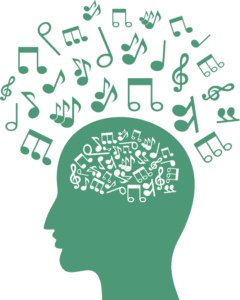Music as a Supportive Therapeutic for Health and Healing
Music is often called a “universal language” that unites us and breaks cultural barriers. It brings joy to our lives, evokes memories, can bring tears to our eyes, and gives us goosebumps. But one of the most powerful things that music can do is serve as a supportive therapeutic for health, wellbeing, and healing.
According to Johns Hopkins University, research has shown that listening to music can reduce anxiety, blood pressure, and pain, as well as improve sleep quality, mood, mental alertness, and memory. Music, sounds, tones, vibrations, and meditations can reinforce clinical, behavioral, cognitive, and emotional therapies that treat conditions including cancer, cardiac disease, diabetes, maternal and/child health, and chronic pain and their often-associated mental and behavioral challenges.
Music calms, relaxes, energizes, and allows us to focus. And how exactly does music do that? Researchers and scientists continue to study the human brain, and its response to music, and its effect on overall health.
Music on the Mind

The different areas of the brain are responsible for different functions such as movement, behavior, emotions, memories, expressions, and experiences. Listening to, playing, reading, and creating music involves almost every part of the brain. Music increases the amount of dopamine produced in the brain – a mood-enhancing chemical, making it a viable treatment for depression and anxiety.
What we know for certain, is that listening to music can have the following positive effects on health:
Improves mood and enhances memory. Studies show that listening to music can benefit overall well being, help regulate emotions, and create happiness and relaxation in everyday life. The repetitive components of rhythm and melody help our brains form patterns that enhance memory.
Reduces stress and anxiety. Listening to relaxing music (with a slow tempo, low pitch, and no lyrics) has been shown to reduce stress and anxiety in healthy people and in people undergoing medical procedures (e.g., surgery, dental, outpatient procedures). In studies of people with chronic conditions, listening to music combined with standard care reduced anxiety compared to those who received standard care alone.
Eases pain. In studies of patients recovering from surgery, those who listened to music before, during, or after surgery had less pain and more overall satisfaction compared with patients who did not listen to music as part of their care.
Provides comfort. Music has also been used to help enhance communication, coping, and expression of feelings such as fear, loneliness, and anger in patients who have a serious illness, and who are in end-of-life care.
Improves cognition. Listening to music can also help people with dementia recall lost memories and even help maintain or strengthen some mental abilities.
If we integrated music into every aspect of healthcare delivery, we would see improved outcomes. Music and its impact on the brain support a wide variety of patient populations with different types of conditions.
Learn more about how GoMo Music™, The Sounds of Healing, can integrate with your organization to support health and healing, or schedule a consultation with one of our experts.







Find Us Online